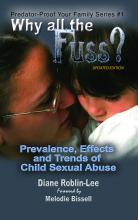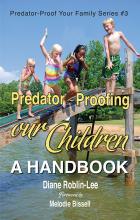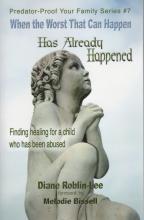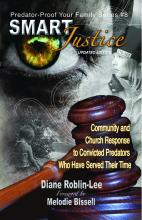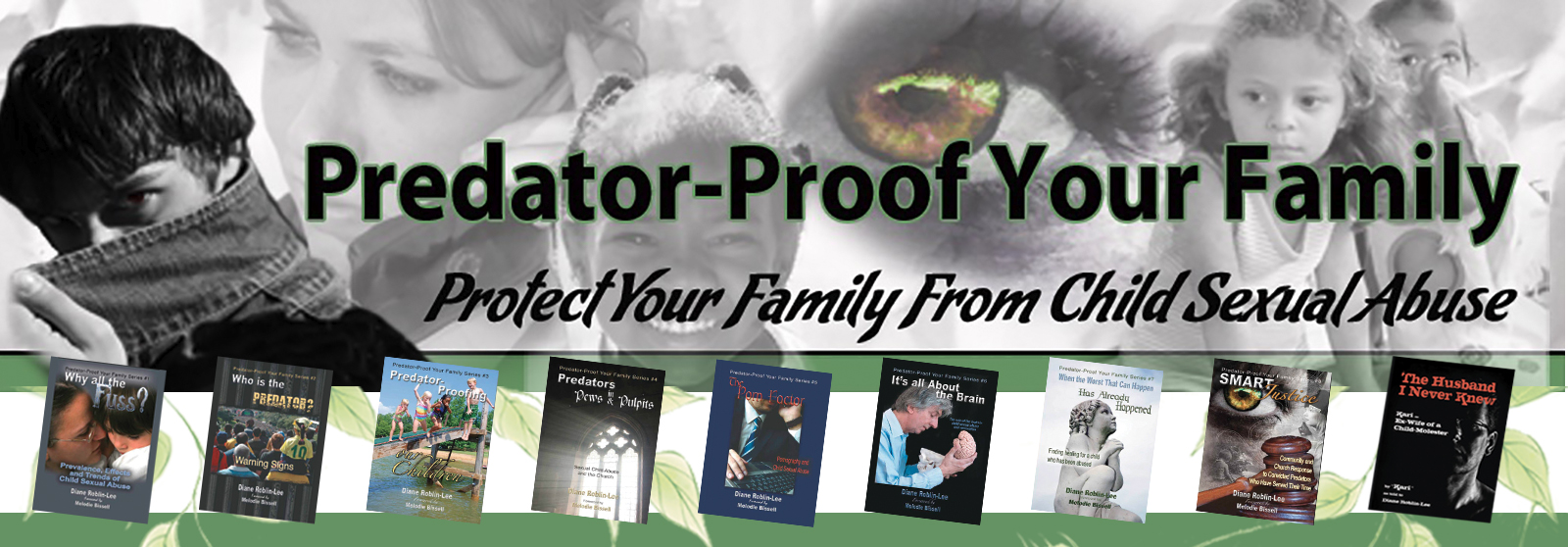
The Secret
Predators depend on victims and their families keeping the dark secret to avoid further pain and heartbreak in the family. Keeping the secret does nothing but bring more pain – allowing the predator free rein on ruining lives. Revealing truth may be hard, but living in secrecy doesn’t work. Dare to tell your story. Stop the destruction.
Daily Tip
Any of 19 foregoing warning signs of a predator need to be viewed within the context of an individual’s life. For instance, if someone enjoys playing with children in the company of other adults, that’s normal. If someone is a particularly helpful person but doesn’t seek out the company of children, that’s a wonderful thing. However, if combinations of the foregoing qualities are evident, there’s cause for concern and children need to be carefully watched around these people.
Daily Tip
19) Predators usually maintain an image of social acceptability, often taking leadership in children’s groups through which to gain the trust of parents and children alike. This is all part of the “grooming” process where victims are groomed to trust the molester. What appears to be friendly helpfulness is really part of a carefully choreographed agenda.
Daily Tip
18) If anyone expresses concerns about his or her behavior, a predator generally responds with denial and aggression, making the concerned individual feel like a fool. Nobody wants to feel like a fool, so without proof of wrongdoing, the concerned individual often returns to silence.
If someone’s behavior is suspect or makes one uncomfortable, it needs to be questioned and, even if there is no proof of inappropriate or criminal behavior, children need to be protected from that person. If it’s just a “feeling of discomfort,” no fuss should be made in case the person is innocent. However, even without making a fuss, a parent or caregiver should take extra precautions to keep a child safe.
Daily Tip
17) Predators use playing with children at a peer level as a manipulative approach to intimacy; tickling, play fighting etc., to gain confidence and rapport and introduce the child to touching. As the child becomes desensitized to touch in appropriate places, the touch progresses to breasts and genitals.
Daily Tip
16) There may be interaction with young teens at a peer level, engaging in conversations about sex, crushes or whatever would not be normally of interest for an adult to discuss with a teen.
Daily Tip
15) They may have either a particularly charming personality or obvious ‘loner’ qualities, sometimes a combination of both. The charmers are socially appealing but often lack substance in their relationships. There’s no sense of genuine bonding at a heart level.
The lack of development of the capacity for intimacy results in emotional loneliness.
Predators Live Among Us – Book Launch
Spotting Potential Child Molesters
It’s pretty hard to protect our kids if we don’t know who the potential molesters might be. The problem is that predators wear masks made to look like trustworthy, safe people.
In the course of researching her book, Identifying Child Molesters, Dr. Carla van Dam interviewed over 300 molesters who exhibited similar types of behaviors in social situations. These similar behaviors provide us with a general pattern to watch for. If an individual exhibits enough of these behaviors to arouse concern, he needs to be considered too risky to allow unsupervised around our children.
Any suggested warning signs need to be viewed within the context of an individual’s life. For instance, if someone enjoys playing with children in the company of other adults, that’s normal. If someone is a particularly helpful person but doesn’t seek out the company of children, that’s a wonderful thing. However, if combinations of the warning signs are evident, there’s cause for concern and children need to be carefully watched around these people.
Predator-Proof Your Family – Series
Predator-Proof Your Family is a series of nine, 50-page booklets on issues surrounding child sexual-abuse.

